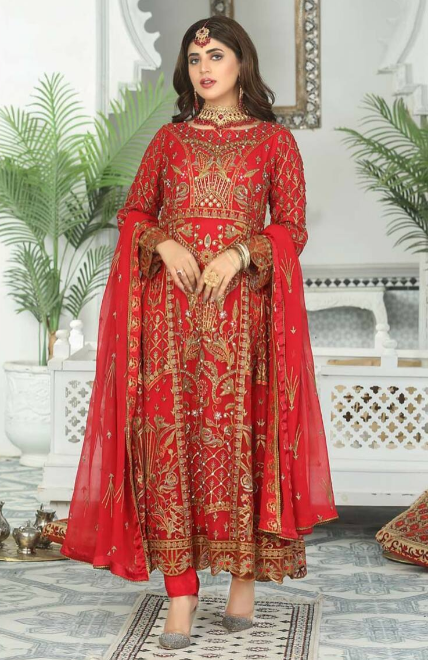Pakistani dresses have woven their vibrant threads into the fabric of the UK’s fashion scene, bringing a rich cultural tapestry to this diverse nation. The growing popularity of traditional and stylish Pakistani dresses reflects a fusion of heritage and modern trends that captivates fashion enthusiasts across the UK.
Rich Cultural Heritage
Pakistan’s diverse cultural heritage is a tapestry of traditions and customs, beautifully reflected in its traditional dresses. These outfits play a crucial role in preserving and showcasing the deep-rooted cultural identity of the Pakistani community settled in the UK.
Evolution of Pakistani Fashion in the UK
The evolution of Pakistani fashion in the UK is marked by the influence of renowned designers and the participation of Pakistani fashion in international events. The integration of traditional elements into modern fashion has created a unique and appealing style that resonates with a broad audience.
Traditional Pakistani Dresses
Classic attire like pakistani Shalwar Kameez and Anarkali suits are the epitome of traditional Pakistani dresses. The intricate embroidery, vibrant colors, and unique designs make these outfits stand out, offering wearers a connection to their roots. A fascinating trend in the UK is the rise of fusion wear that combines traditional Pakistani elements with contemporary styles. This fusion has given birth to a range of stylish outfits that cater to individuals seeking a blend of heritage and modernity.
Pakistani Wedding Dresses in the UK
The allure of Pakistani wedding Dresses has transcended cultural boundaries, with many in the UK opting for these dresses. The detailed craftsmanship of bridal and groom wear adds an extra layer of elegance to weddings, making them a memorable affair. To embrace Pakistani fashion in the UK, there are numerous physical stores and online platforms offering a diverse range of dresses. From local boutiques to renowned brands, finding the perfect attire is an exciting journey.
Celebrities and Influencers Impact
Pakistani celebrities and influencers in the UK play a pivotal role in popularizing these dresses. Their public appearances in traditional Pakistani attire contribute to the rising trend, showcasing the beauty and grace of these outfits. One of the key reasons for the increasing popularity of Pakistani dresses is the perfect blend of comfort and elegance. The loose-fitting yet stylish designs make them suitable for various occasions, from casual gatherings to formal events.
Customization and Tailoring
The trend of customization is on the rise, allowing individuals in the UK to tailor Pakistani dresses to their preferences. This personal touch ensures a perfect fit and adds a unique touch to the outfit. The Pakistani community actively participates in cultural festivals and events across the UK, proudly showcasing traditional dresses. These celebrations become a visual feast, highlighting the diversity within the community.
:Pakistani fashion has gained global recognition, with international fashion shows featuring Pakistani designers and collaborations. The intricate designs and cultural richness have resonated with fashion enthusiasts worldwide.
Influence on Western Fashion
Pakistani designs have made a significant impact on Western fashion, with designers drawing inspiration from traditional Pakistani elements. Collaborations between Pakistani and Western designers have further bridged the gap, creating a harmonious blend of styles.
Sustainability in Pakistani Fashion
The Pakistani fashion industry is embracing sustainability, with a focus on eco-friendly materials and ethical production. This shift towards a more sustainable approach reflects a commitment to both fashion and the environment.
Conclusion
In conclusion, the journey of traditional and stylish Pakistani dresses in the UK is a testament to the cultural richness and fashion diversity that this community brings. The fusion of heritage and modernity, coupled with the comfort and elegance of these outfits, has made them an integral part of the UK’s fashion landscape.


